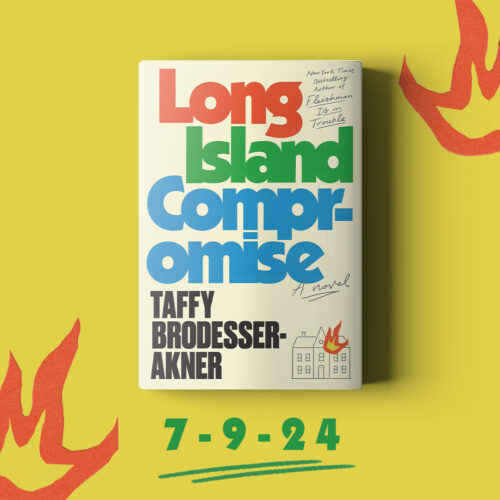 I am of two minds with this novel, which chronicles a fictional Jewish family on the north shore of Long Island and how they devolve after the father is kidnapped for a week. The three children are tracked as they grow up into dysfunctional adults with addiction problems, with marital problems, and with various other issues in trying to cope with their father’s ordeal. The Long Island Compromise is really a devil’s bargain — having lived in one of the wealthiest suburbs in America, after escaping the Holocaust, after dealing with numerous anti-semitic people, places, and circumstances. Having grown up on Long Island’s south shore and raised my daughter on the North Shore in a community that mirrors what is described in fictional terms in the novel, this story resonated with me. The excesses experiences with the family’s wealth, and with trying to out-Jew their neighbors is all too real.
I am of two minds with this novel, which chronicles a fictional Jewish family on the north shore of Long Island and how they devolve after the father is kidnapped for a week. The three children are tracked as they grow up into dysfunctional adults with addiction problems, with marital problems, and with various other issues in trying to cope with their father’s ordeal. The Long Island Compromise is really a devil’s bargain — having lived in one of the wealthiest suburbs in America, after escaping the Holocaust, after dealing with numerous anti-semitic people, places, and circumstances. Having grown up on Long Island’s south shore and raised my daughter on the North Shore in a community that mirrors what is described in fictional terms in the novel, this story resonated with me. The excesses experiences with the family’s wealth, and with trying to out-Jew their neighbors is all too real.
So is their reaction to the father’s kidnapping, which manifests itself in different ways to each family member. Some choose avoidance : “any reference to a thing that could later be a trigger to discuss The Thing” — the kidnapping — is a very apt way to describe grief and the fragility of those who are grieving.
So what is there not to like about this book? It isn’t that it cuts too close to home. It isn’t that its scenes of BDSM or drug abuse or numerous hooker and mystic encounters are (as I imagine) too realistic. The descriptions are sometimes just so filled with irony and accuracy that I would often pause while reading to let them sink in. But they could be hard to take for some readers. And for those of you who grew up in suburbia, or who are Jewish, this could be entertaining, poignant, or both. Certainly, its treatment of how families confront their destinies and future potential is laid bare in a way that I haven’t seen very often, and is quite genuine.
The novel is based on this actual kidnapping that happened in the 1970s. Read it here.